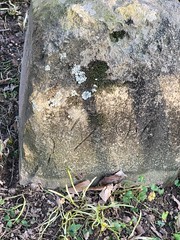Two articles on Chinese Communist Party statements of support for the independence of Taiwan during the 1930s and 1940s. The first a Radio Free Asia article lists several instances. Most support Taiwan independence from Japan, which had taken Taiwan from Qing imperial China in 1995 as a result of China’s defeat in the Sino-Japanese War. Taiwan didn’t accept subjection to Japan and rebelled, founding the Republic of Formosa. It took Japan six months to defeat Taiwan’s resistance to Japanese rule.

The second article an anonymous Chinese scholar writing under the penname of 京都静源 Kyoto Sizumoto who describes himself as a researcher on “Chinese History of Thought with Traditional Scripture as the main focus, Paleography with Shang and Zhou Jinwen as the main focus, Shang and Zhou History with Religious and Institutional History as the main focus, Classical Literature with Editions and Corrigenda as the main focus, Overseas Sinology with Kyoto School as the main focus, and Chinese History of Literature with Ancient Myths and Poetry as the main focus.” He apparently is not sweating maintaining his anonymity too much.
Kyoto Sizumoto argues that the first generation Communist Party leaders supported the independence of Taiwan from Japan but not from China.
However, in 1947, nearly two years after Japanese rule ended, after the suppression that came after the February 28 Incident during which Chiang Kai-shek’s KMT slaughtered thousands of innocent civilians, Mao supported Taiwan’s right to become fully independent.
Like any good lawyer would do Kyoto Sizumoto neglects to bring up information that hurts his own case.
Some might ask how far one could get betting on the sincerity of Mao Zedong. Calling for Taiwan independence might just have been a way to cause more trouble for the Nationalist Party aka KMT/Republic of China against which Mao was then leading a rebellion. There are many wheels within wheels in the Communist Party’s long fight against the KMT. For an ROC/Taiwan perspective, this translation of the Wiki article on PRC spies is intriguing: PRC Spies in the ROC/Taiwan Military
【Historical Trivia】Mao Zedong: We Support Taiwan Independence
Radio Free Asia July 29, 2021
【Historical Trivia】Mao Zedong: We Support Taiwan Independence

Data image
In mainland China, Zhu Fenglian, a spokesperson for the Taiwan Affairs Office, on Wednesday (28th), criticized Taiwan Legislative Yuan President You Si-kun by name for spreading “Taiwan independence” remarks. That evening, You Si-kun countered, citing research by Professor Li Xiaofeng from the Institute of Taiwan Culture Studies at National Taipei University of Education, pointing out that the CCP also once supported Taiwan independence. He sarcastically suggested that the Taiwan Affairs Office should be fair and “not let go of Mao Zedong.” What exactly is going on here?
Professor Li Xiaofeng once contributed an article to Taiwan’s “Apple Daily” on May 6, 2015, titled “The CCP Once Supported Taiwan Independence.” The article pointed out that in 1928, under the suggestion of the CCP, Taiwanese left-wingers Xie Xuehong, Lin Mushun, and others organized the Taiwanese Communist Party. On April 15, the Taiwanese Communist Party was established in the French Concession in Shanghai. The second and third articles of the political program proclaimed, “Long live the independence of the Taiwanese people” and “Establish the Republic of Taiwan.” At that time, the CCP not only did not oppose but also sent a representative, Peng Rong, to attend the founding meeting of the Taiwanese Communist Party.
According to the book “Red Star Over China” by American scholar Edgar Snow, when Snow visited Yan’an on July 16, 1936, he asked Mao Zedong, “Do the Chinese people want to recover all the lost territories from Japanese imperialists?” Mao Zedong replied, “We not only want to defend the sovereignty south of the Great Wall but also to recover all our lost territories. This means that Manchuria must be recovered. But we do not include Korea, which was formerly a Chinese colony. When we recover our lost territories and achieve independence, if the Korean people want to break free from the shackles of Japanese imperialists, we will warmly support their fight for independence. This also applies to Taiwan.”
Li Xiaofeng also pointed out that in June 1941, Zhou Enlai, in an article titled “Nation Above All and State Above All,” clearly stated that China should not only pursue its own independence and autonomy but also support the independence and liberation movements of other nationalities and countries. These movements included the anti-Japanese movements in Korea and Taiwan.
Furthermore, according to the May 1, 1945, “Liberation Daily,” before the end of World War II, the CCP held its 7th National Congress from April 23 to June 12, 1945. A document from the congress included Taiwan among other nations. The congratulatory message from “Taiwan and other nations” included Taiwan, the Philippines, Vietnam, Thailand, Malaya, the Dutch East Indies, and Burma. The congratulatory message clearly stated that the CCP had long supported the independence movements of “various Oriental nationalities,” including Taiwan.
Professor Li further pointed out that after the war, when the Nationalist government took over Taiwan, the “February 28 Incident” broke out in 1947. The CCP’s “Liberation Daily” published an article on March 8 supporting Taiwan independence. Mao Zedong said in his broadcast speech from Yan’an, “The armed forces led by our Chinese Communist Party fully support the Taiwanese people’s struggle against Chiang Kai-shek and the Kuomintang. We support Taiwan independence; we support Taiwan establishing a state that meets its own requirements.”
Did the First Generation of CCP Leaders Support Taiwan Independence?
August 8, 2022
Did the First Generation of CCP Leaders Support Taiwan Independence?
——Whose Taiwan: A Comprehensive Review of Historical Documents and Political Claims
Kyoto Sizumoto, Ph.D. in Literature
In Taiwanese academia, the claim that the first generation of CCP leaders supported Taiwan independence is quite prevalent. They cite numerous original archival documents showing Mao Zedong, Zhou Enlai, Zhu De, and even the founders of the Taiwanese Communist Party supporting “Taiwan independence.”
Now, let me analyze and interpret these core documents as follows:
On April 15, 1928, the Taiwanese Communist Party was established in the French Concession in Shanghai. The second and third articles of its political program proclaimed “Long live the independence of the Taiwanese people” and “Establish the Republic of Taiwan.” Note that “independence” and establishing the “Republic of Taiwan” here refer to independence and state-building from Japanese occupation, not independence from China. Many Taiwanese scholars, such as Professor Li Xiaofeng of the Institute of Taiwan Culture Studies at National Taipei University of Education and Shiming, the “father of Taiwan independence,” who passionately advocate that “the Taiwanese Communist Party was the first to support Taiwan independence,” clearly misunderstood the text.
According to Edgar Snow’s “Red Star Over China,” when Snow visited Yan’an on July 16, 1936, he asked Mao Zedong, “Do the Chinese people want to recover all lost territories from Japanese imperialists?” Mao Zedong replied, “We not only want to defend the sovereignty south of the Great Wall but also to recover all our lost territories. This means Manchuria must be recovered. But we do not include Korea, which was formerly a Chinese colony. When we recover our lost territories and achieve independence, if the Korean people want to break free from the shackles of Japanese imperialists, we will warmly support their fight for independence. This also applies to Taiwan.” Additionally, on March 8, 1947, “Liberation Daily” published Mao Zedong’s broadcast speech from Yan’an: “The armed forces led by our Chinese Communist Party fully support the Taiwanese people’s struggle against Chiang Kai-shek and the Kuomintang. We support Taiwan independence; we support Taiwan establishing a state that meets its own requirements.”
These statements by Mao Zedong still advocate for Taiwan’s independence and state-building from Japanese occupation, not independence from China. The claims by Professor Hsiao-Feng Lee of the Institute of Taiwan Culture Studies at National Taipei University of Education and Shih Ming-teh,, the “Father of Taiwan Independence,” that “the CCP long advocated Taiwan independence” are deliberate distortions and malicious misinterpretations.
For the same reasons, Zhou Enlai’s article “Nation Above All and State Above All,” published on the front page of “Xinhua Daily” on June 16, 1941, clearly stated: “Because we oppose the invasion of others, we also oppose invading others. This means that in our struggle for liberation, the Chinese nation has no ambitions of invading others, including Japan. It also means that the Chinese nation opposes other imperialist actions of unjust invasion and oppression of other nations. Because we oppose the invasion of others, we must sympathize with the independence and liberation movements of other nations and peoples. This includes the anti-Japanese movements in Korea and Taiwan, as well as the anti-German and anti-Italian invasions in the Balkans and African nations. We should also support the independence movements in India and Southeast Asia.” This is the original speech by Zhou Enlai that Taiwanese scholars have exaggerated as supporting Taiwan independence.
For the same reasons, the May 1, 1945, “Liberation Daily” reported a congratulatory message titled “Congratulatory Message from Taiwanese and Other Nationalities’ CCP Members to the Seventh National Congress of the CCP,” congratulating the CCP’s Seventh National Congress held from April 23 to June 12, 1945. Here, “Taiwan and other nationalities” clearly refers to countries and regions seeking independence from Japanese rule, not the Republic of Taiwan, and certainly not the “Taiwan Nation” imagined by the Democratic Progressive Party.
When the President of Taiwan’s Legislative Yuan, You Si-kun, spread “Taiwan independence” remarks, he also cited the above research and evidence by Professor Hsiao-Feng Lee of the Institute of Taiwan Culture Studies at National Taipei University of Education and Shih Ming-teh, the “Father of Taiwan Independence.” Clearly, he has been misled.
【歷史冷知識】毛澤東:我們贊成台灣獨立
2021.07.29
 1947年台灣爆發「二二八事件」,毛澤東(圖左)在延安的廣播講話曾說:「我們贊成台灣獨立。」圖右為周恩來。
1947年台灣爆發「二二八事件」,毛澤東(圖左)在延安的廣播講話曾說:「我們贊成台灣獨立。」圖右為周恩來。
資料圖片
00:00/00:00
在中國大陸,國台辦發言人朱鳳蓮周三(28日)點名批評台灣立法院長游錫堃散布「台獨」言論。游錫堃當晚作出反擊,引用國立台北教育大學台灣文化研究所教授李筱峰研究指出,中共以前也曾贊成台獨;他反諷,國台辦最好公平一點,「不要放掉毛澤東」。到底這是怎麼一回事呢?
李筱峰教授曾於2015年5月6日投稿台灣《蘋果日報》,文章題為《中共以前是贊成台獨的》。該文指出:1928年,在中共的建議下,謝雪紅、林木順等台籍左翼人士籌組台灣共產黨,4月15日台灣共產黨在上海法國租界成立。揭櫫的政治大綱第二、三條就表明「台灣人民獨立萬歲」、「建立台灣共和國」。當時的中共不但沒有反對,還派代表彭榮參加台共的成立大會。
又據美國學者斯諾(Edgar Snow)所著《紅星照耀中國》(Red Star over China)一書,1936年7月16日,斯諾到延安訪問時曾向毛澤東詢問:「中國人民是否要從日本帝國主義者手中收復所有失地?」毛澤東當時回答:「不僅要保衛長城以南的主權,也要收復我國全部的失地。這就是說滿洲必須收復。但我們並不把中國以前的殖民地朝鮮包括在內。當我們收回中國的失地,達成獨立以後,如果朝鮮人民希望掙脫日本帝國主義者的枷鎖,我們將熱烈支援他們爭取獨立的戰鬥。這一點同樣適用於台灣。」
李筱峰又指出,1941年6月,周恩來在《民族至上與國家至上》一文中,明白表示中國除了要追求自己的獨立自主,也要支持其他民族國家的獨立解放運動。這些運動包括:朝鮮、台灣的反日運動。
另據1945年5月1日《解放日報》,二戰即將結束前,中共於1945年4月23日至6月12日召開第7次全國代表大會,曾刊載一份有台灣名號的文件《台灣等國留延黨員致中共七大大會祝賀詞》,簽發賀詞的「台灣等國」包括台灣、菲律賓、越南、泰國、馬來亞、荷印、緬甸;賀詞中明確提到中共長期支持「東方各民族」(包括台灣)的獨立運動。
李教授更指出,戰後國民政府接管台灣,1947年台灣爆發「二二八事件」,中共的《解放日報》還在3月8日發表「支持台灣獨立」的言論。毛澤東在延安的廣播講話就說:「我們中國共產黨所領導的武裝部隊,完全支援台灣人民反對蔣介石和國民黨的鬥爭。我們贊成台灣獨立,我們贊成台灣自己成立一個自己所要求的國家。」
記者/責編:方德豪 網編:劉定堅
中共第一代领导人是否支持过台湾独立
(2022-08-08 08:27:29)下一个
中共第一代领导人是否支持过台湾独立
——谁的台湾:历史文献和政治主张的综合审查1
京都静源教授、文学博士
在台湾学术界,所谓“中共第一代领导人支持过台湾独立”的说法是相当盛行。他们举出了毛泽东、周恩来、朱德乃至于台湾共产党创始人的诸多支持“台湾独立”的原始档案文献。
现在,让我对这些核心文献分析解读如下:
1928年4月15日,台湾共产党在上海法国租界成立。其政治大纲第二、三条就表明“台湾人民独立万岁”“建立台湾共和国”。请注意:这里的“独立”和建立“台湾共和国”是指台湾从日本占领下的独立和建国,而不是让台湾从中国独立。台湾不少学者,如,台北教育大學台灣文化研究所李筱峰教授、台独教父史明热烈主张的“台共最先支持台湾独立”之说,显然是望文生义了。
根据斯诺《红星照耀中国》记载:1936年7月16日斯诺到延安访问时曾向毛泽东询问:“中国人民是否要从日本帝国主义者手中收复所有失地?”毛泽东当时回答:“不仅要保卫长城以南的主权,也要收复我国全部的失地。这就是说满洲必须收复。但我们并不把中国以前的殖民地朝鲜包括在内。当我们收回中国的失地,达成独立以后,如果朝鲜人民希望挣脱日本帝国主义者的枷锁,我们将热烈支援他们争取独立的战斗。这一点同样适用于台湾。”又见1947年3月8日《解放日报》发表毛泽东在延安的广播讲话:“我们中国共产党所领导的武装部队,完全支援台湾人民反对蒋介石和国民党的斗争。我们赞成台湾独立,我们赞成台湾自己成立一个自己所要求的国家。”
这两处的毛泽东发言,全部意义依然还是主张台湾从日本占领下的独立和建国,不是让台湾从中国独立。台北教育大學台灣文化研究所李筱峰教授、台独教父史明等人大肆鼓吹的“中共曾经长期倡导台独”之说,是不是故意歪曲和恶意理解?
基于同样的理由,《新华日报》1941年6月16日第一版发表周恩来《民族至上与国家至上》一文明白表示:“正因为我们反对别人侵略、所以我们也反对侵略别人。这一方面、说是中华民族光自求解放的抗战中并无侵略别人(连日本在内)的野心、另一方面又说明中国民族也反对别的帝国主义侵略其他国家、压迫其他民族之非正义的行动。也正因为我们反对别人侵略、所以我们必须同情于其他民族国众的独立解放运动。这不仅朝鲜、台湾的反日连动;巴尔干、非洲民族国家的反德意侵略、我们应该赞助、便连印度、南洋等地的民解放连动、我们也应该同情。 ”这就是为台湾学者大肆鼓吹的周恩来支持台湾独立的原始发言。
还是基于同样的理由,1945年5月1日《解放日报》刊载了题目为《台湾等国留延党员致中共七大大会祝贺词》的报道,祝贺中共1945年4月23日至6月12日召开第7次全国代表大会。这里的“台湾等国”显然是指从日本统治下寻求独立的国家和地区。而不是台湾共和国,更不是民进党们设想中的“台湾国”。
台湾的立法院长游锡堃散布“台独”言论时,也引用国立台北教育大学台湾文化研究所教授李筱峰、台独教父史明的上述研究和证据,显然他被忽悠了。


